 W
WDr. Gangadhar Adhikari was a prominent Marxist theoretician and prolific writer. He was the former general secretary of the Communist Party of India (CPI), one of the oldest political parties in India.He was a chemical scientist who earned his Ph.D. degree in Berlin in 1927. He worked with some of the best scientists, attending lectures by Max Planck and Albert Einstein.
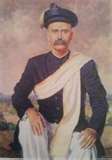 W
WGopal Ganesh Agarkar was an Indian social reformer, educationist, and thinker from Maharashtra, India.
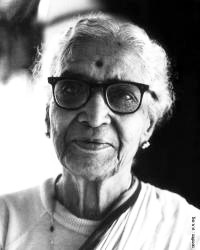 W
WMalati Vishram Bedekar was a Marathi writer from Maharashtra, India. She was the first prominent feminist writer in Marathi literature. She also used pseudonym Vibhavari Shirurkar (.
 W
WDurga Narayan Bhagwat, popularly known as Durga Bhagwat, was an Indian scholar, socialist and writer. She studied Sanskrit and Buddhist literature and spent time in the jungles of Madhya Pradesh to study tribal life. She later returned to Mumbai as a researcher and wrote books in Marathi. She is arguably the foremost female writer in Marathi. Shes one amongst the prominent writers who opposed The Emergency (India). She also abstained from accepting such institutional and civilian honours as the Padma Shree and the Jnanapeeth.
 W
WVinayak Narahari "Vinoba" Bhave was an Indian advocate of nonviolence and human rights. Often called Acharya, he is best known for the Bhoodan Movement. He is considered as a National Teacher of India and the spiritual successor of Mohandas Gandhi. He was an eminent philosopher. The Gita has also been translated into Marathi language by him with the name as Geetai means mother Geeta.
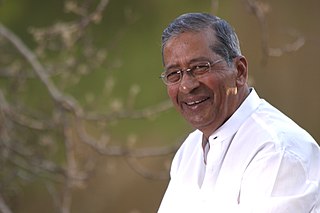 W
WBhavarlal Hiralal Jain was an Indian entrepreneur, and the founder chairman of Jain Irrigation Systems Ltd. (JISL), now the second largest micro-irrigation company in the world. He was a staunch Gandhian and philanthropist. He was the founder of Gandhi Research Foundation.
 W
WMalti Joshi is an Indian novelist, essayist, and writer, who writes primarily in the Hindi and Marathi languages. She was awarded the Padma Shri, one of India's highest civilian honours, in 2018.
 W
WVasant Purushottam Kale, popularly known as Va Pu, was a Marathi writer. He wrote more than 60 books. His well-known works include Partner, Vapurza, Hi Waat Ekatichi, and Thikri. He was a famous story-teller and had over 1600 stage-shows (कथाकथन) in the theatres. He was the first writer to come in form of audio cassettes. He has also written so many story collection books which include "Sakhi", "Taptapadi", "One for the road" etc. which are praised by the readers for being relatable.
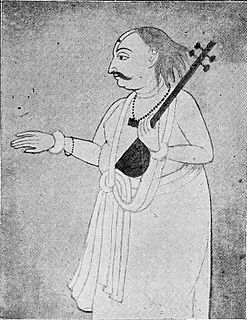 W
WMahipati was a Marathi language hagiographer who wrote biographies of prominent Hindu Vaishnava sants who had lived between the 13th and the 17th centuries in Maharashtra, India. He was born in a Marathi Deshastha Rigvedi Brahmin family of Vashistha gotra.
 W
WAnupam Mishra was an Indian Gandhian, author, journalist, environmentalist, TED speaker, and water conservationist who worked on promoting water conservation, water management and traditional rainwater harvesting techniques. He had been awarded the 1996 Indira Gandhi Paryavaran Puraskar (IGPP) award instituted by the Ministry of Environment and Forests, Government of India. He travelled to villages across several Indian states, especially Rajasthan, Madhya Pradesh, Maharashtra, and Uttar Pradesh, describing the value of time-tested systems of water harvesting. He advocated conservation of traditional water structures in India as well as abroad. He wrote books like Aaj Bhi Khare Hain Talaab and Rajasthan Ki Rajat Boondein, landmark works in the field of water conservation. An extensive interview with Mishra about the history and future of the Yamuna River occupies the last chapter of Rana Dasgupta's book Capital: The Eruption of Delhi.
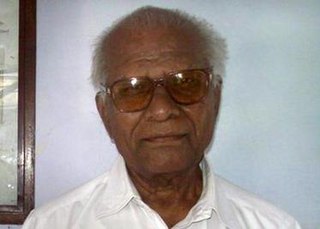 W
WGovind Pansare was a left-wing Indian politician of the Communist Party of India (CPI). He was also the author of the best selling Marathi language biography of 17th century ruler Shivaji, Shivaji Kon Hota. He and his wife were attacked on 16 February 2015 by gun-wielding assailants in kolhapur district. He died from his wounds on 20 February.
 W
WAppasaheb Pant (1912-1992), also known as Appa Pant, Appa Sahib Pant, Appsaheb Balasaheb Pant, Parashuram-rao Pant, was an Indian diplomat, prince, Gandhian, writer and freedom fighter. A philosopher by nature and a mystic at heart, who served for over forty years as a career diplomat for the Indian Government. He served as the Indian Commissioner at various African countries such as Kenya, Uganda, Tanganyika, Zanzibar, Northern Rhodesia, Southern Rhodesia, Nyasaland and the Belgian colony of the Congo and, later, as the Indian ambassador to countries like Indonesia, Norway, Egypt, United Kingdom and Italy. The Government of India honoured him in 1954, with the award of Padma Shri, the fourth highest Indian civilian award for his contributions to the society, placing him among the first recipients of the award.
 W
WYashawant Dinkar Phadke was a historian and a political activist from Maharashtra, India.
 W
WJyotirao Govindrao Phule was an Indian social activist, thinker, anti-caste social reformer and writer from Maharashtra. His work extended to many fields, including eradication of untouchability and the caste system, and women's emancipation. He is mostly known for his efforts in educating women and lower caste people. He and his wife, Savitribai Phule, were pioneers of women education in India. Phule started his first school for girls in 1848 in Pune at Tatyasaheb Bhide's residence or Bhidewada. On 24 September 1873, he, along with his followers, formed the Satyashodhak Samaj to attain equal rights for people from lower castes. People from all religions and castes could become a part of this association which worked for the upliftment of the oppressed classes. Phule is regarded as an important figure in the social reform movement in Maharashtra.The honorific Mahātmā, was first bestowed on him by his followers in 1888 and is now used everywhere in Maharshtra and India.
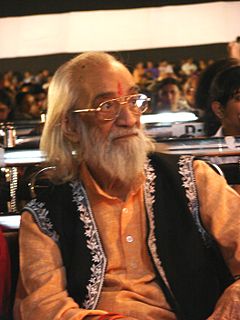 W
WBalwant Moreshwar Purandare, popularly known as Babasaheb Purandare is a writer and theatre personality from Maharashtra, India. He was awarded with Padma Vibhushan, India's second-highest civilian award on 25 January 2019. His works are mostly based on the events related to the life of Chatrapati Shivaji Maharaj, the 17th-century founder of the Maratha Empire; as a result he is termed as Shiv-Shahir. He is mostly known for his popular play on Shivaji Jaanta Raja which was popular not only in Maharashtra but also in Andhra Pradesh and Goa. Purandare has also studied the history of the Peshwas of Pune. He is also known for his significant contribution along with Madhav Deshpande & Madhav Mehere as senior party leaders in the early-1970s of Shiv Sena along with Balasaheb Thackeray. In 2015, he was awarded with Maharashtra Bhushan Award, Maharashtra's highest civilian award.
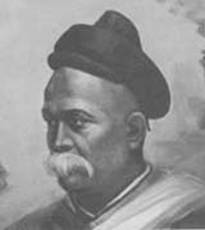 W
WMahadev Govind Ranade was an Indian scholar, social reformer, judge and author. He was one of the founding members of the Indian National Congress party and owned several designations as member of the Bombay legislative council, member of the finance committee at the centre, and judge of the Bombay High Court, Maharashtra.
 W
WVinay Prabhakar Sahasrabuddhe is an Indian politician and Member of Parliament of India representing state of Maharashtra in the Rajya Sabha. He is also serving as National Vice President of Bharatiya Janata Party. Mr. Sahasrabuddhe has been appointed as President of Indian Council for Cultural Relations by President of India. He is known as a political scholar and an occasional columnist. He is the Vice Chairman of Rambhau Mhalgi Prabodhini, a research and training academy for elected representatives & social activists. He heads BJP's think tank Public Policy Research Centre.
 W
WPandurang Sadashiv Sane, also known as Sane Guruji by his students and followers, was a Marathi author, teacher, social activist and freedom fighter from Maharashtra, India. He is referred to as the National Teacher of India.
 W
WVasant Sarwate was an Indian cartoonist and writer who was published primarily in Marathi publications during his lifetime.
 W
WTryambak Shankar Shejwalkar was an award-winning historian and essayist.
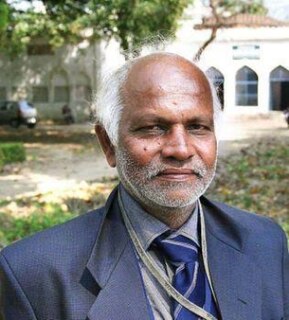 W
WRamchandra Siras was an Indian linguist and author. He was a professor at the Aligarh Muslim University specializing in Marathi literature and head of the Department of Modern Indian Languages. The film Aligarh, directed by Hansal Mehta, is based on his life.
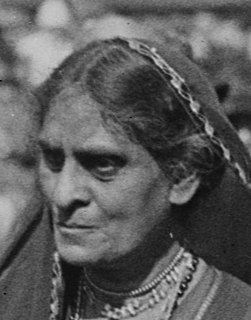 W
WCornelia Sorabji was an Indian lawyer, social reformer and writer. She was the first female graduate from Bombay University, the first woman to study law at Oxford University, and the first female advocate in India.
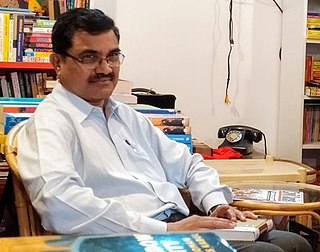 W
WAnand Teltumbde is an Indian scholar, writer, and civil rights activist who is a management professor at the Goa Institute of Management. He has written extensively about the caste system in India and has advocated for the rights of Dalits.
 W
WBal Gangadhar Tilak, born as Keshav Gangadhar Tilak, was an Indian nationalist, teacher, and an independence activist. He was one third of the Lal Bal Pal triumvirate. Tilak was the first leader of the Indian Independence Movement. The British colonial authorities called him "The father of the Indian unrest." He was also conferred with the title of "Lokmanya", which means "accepted by the people ". Mahatma Gandhi called him "The Maker of Modern India".
 W
WA. B. Walawalkar was an Indian railway engineer, epigraphist & historian. He is regarded as the founder of Konkan Railway. Born on 27 December 1897, he was from the village of Walawal in Kudal Taluka of Sindhudurg District in Maharashtra. He belongs to Naik Maratha Samaj of Sindhudurg. Shri Arjun Balwant Walawalkar joined Central India Railway in its Engineering Drawing Department in 1922. In 1952 he published a booklet on Konkan Railway Project. He delivered seminars and wrote many articles in local and national newspapers about this project. Many people criticized Walawalkar, believing the project was not useful.